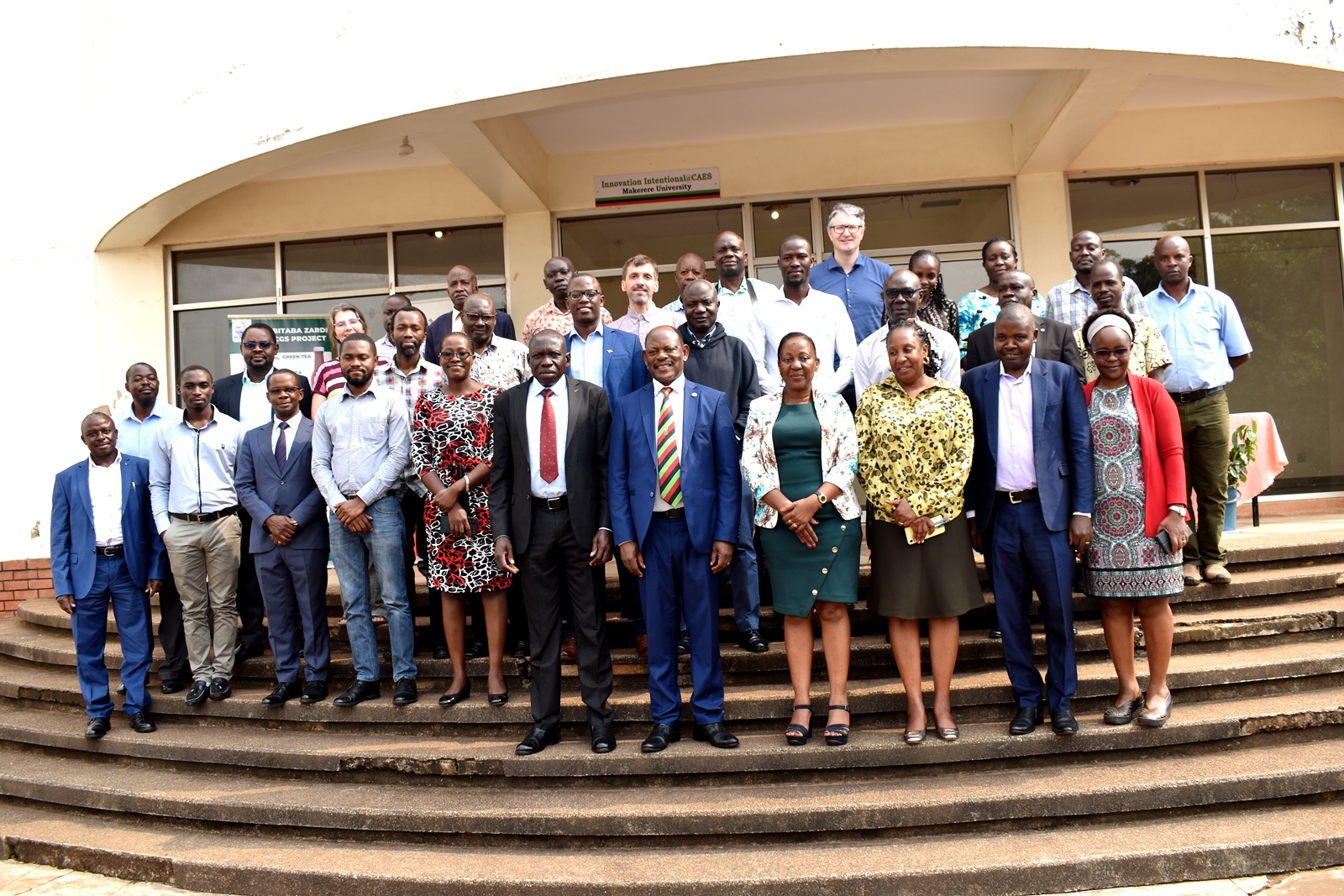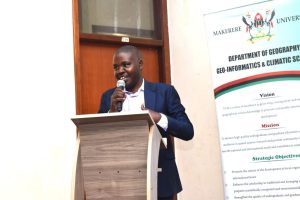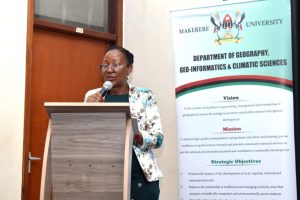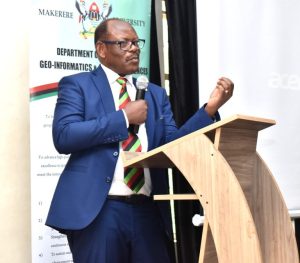Nbs4Tea
Funded by the Danish Fellowship Centre under the Ministry of Foreign Affairs, Denmark, the Project, Nature-based Solutions for Climate-Resilient Tea Production in Uganda (NbS4Tea), is envisaged to sustainably bridge the tea yield gap in Uganda by developing research-based NbS for enhanced climate resilience of tea production systems.
 The Vice Chancellor, Prof. Barnabas Nawangwe (5th R), the Principal of CAES, Prof. Gorettie Nabanoga (4th R) and the representative of the DG NARO, Dr. Sadiq Kassim (6th L) together with the research team after the launch of the project.
The Vice Chancellor, Prof. Barnabas Nawangwe (5th R), the Principal of CAES, Prof. Gorettie Nabanoga (4th R) and the representative of the DG NARO, Dr. Sadiq Kassim (6th L) together with the research team after the launch of the project.
Project Overview:
Tea is a widely consumed and one of the oldest beverages in the world ranked second after water. Reports indicate that in Uganda, tea is the second-largest export crop after coffee, grown by both large-scale (32%) and smallholder farmers (68%). Tea production is increasing in rural areas due to its high demand and associated benefits in the provision of jobs, incomes, and health. The third National Development Plan (NDPIII) 2020/21-2024/25) identifies tea as a key agricultural crop to contribute to the national Vision 2040 of a higher middle-income country with sound food security. Yet, current tea production in Uganda is neither optimal in terms of field management, sustainable intensification, and biodiversity potential, nor climate-resilient under increasingly erratic weather patterns. Farmers in Uganda still grow colonial-era (old) tea varieties that are not climate resilient or properly managed, resulting in low yields of 6 tea hectares per year. Tea production is negatively impacted in yield and quality by climate change impacts on soil quality, disease and pest incidence, drought and heat waves. About 75% of Ugandan soils, upon which 68% of smallholder farmers derive their livelihoods, are predominantly Ferralitic, with excellent physical, but poor chemical properties (low organic matter and nutrient levels, high phosphorus fixing potential). Some farmers circumvent these challenges of soil infertility by applying expensive inorganic fertilizers that consequently pollute the environment and increase greenhouse gas (GHG) emissions. Soil interventions that can sustain the cultivation, productivity, and quality of tea by improving soil fertility are needed. Also, weather variability, increased temperature and erratic rainfall significantly reduce crop yield and tea is no exception. Compared to the 1960s, the temperature in Uganda is expected to increase by 1.8°C by 2050 and rainfall will be more erratic. These abiotic climate stresses act directly and negatively on the tea plants, and increase outbreaks of tea pests and diseases, including arthropods such as mites and mealybugs. Developing methods for detection of plant growth dynamics and stress, improving soil status, and identifying climate-resilient tea varieties resistant to pests and diseases is crucial. There is also a wide knowledge gap in Africa regarding the impacts of the current climate, its variability and expected climate change on tea production systems, especially for smallholder farmers and their sustainability. Bridging this gap can be done by a combination of surveys, modelling, and field experiments.
   |
| The Project Coordinator at Makerere University, Dr Alex Nimusiima,The Principal of CAES, Prof. Gorettie Nabanoga and the Vice Chancellor of Makerere University, Prof. Barnabas Nawangwe launched the project. |
